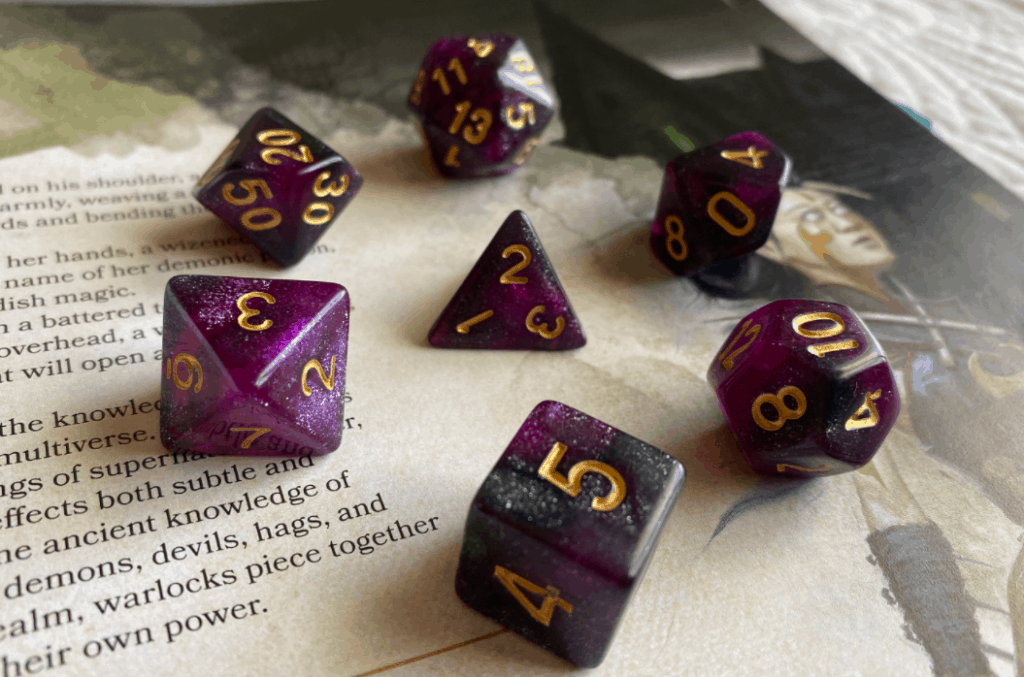
As the weather turns from summer to fall, and inevitably winter, much of our recreation moves inside. For some of us, that recreation includes playing games — card games, board games, roleplaying games, sometimes cooperatively, sometimes competitively.
I got to thinking about games when I ran across this article at the website Earth & Altar. In it, the author, Episcopal priest Brian Fox, writes about how his particular game hobby, playing Dungeons & Dragons, and how his love of the game ties in to his faith:
But I think there’s something more. Parts of Dungeons and Dragons remind me of Church. Stories of good overcoming evil, playing with agency and action, cultivating a sense of creativity and imagination: these are aspects of the Christian tradition that I love. They’re also crucial ingredients to a good game of D&D! While D&D isn’t a religious hobby, it appeals to my sense of religion. As a Christian who enjoys these kinds of tabletop games, I sense some common ground between my faith and my hobby. Playing this game of fantasy adventure does not feel frivolous to me; it feels like another way to celebrate the life God calls us to: a life of cooperation and community, imagination and hope, playfulness and joy.
Full disclosure, your friendly PubTheo discussion leader is a veteran D&D player. And when I say veteran, I mean it. I think I’ve been playing for close to 50 years now, having taken up the game some time between 1974, when the first edition was released, and 1977 when what was called Advanced D&D hit the shelves of nerdy bookstores and hobby shops across America.
D&D, and other roleplaying games like it, are cooperative exercises in which players come together to create a collective story. For Fox, this is central to the appeal of the game, and has parallels to his faith:
Like the gospel, Dungeons and Dragons is not competitive. Nobody is playing to win. The Dungeon Master challenges players with monsters and puzzles, but doesn’t try to defeat them – nor do the players win by overcoming the DM’s obstacles. The point of the game is simply to play it, to enjoy the unfolding story caused by unpredictable dice rolls. I’m reminded of James P. Carse’s Finite and Infinite Games, in which “a finite game is played for the purpose of winning, an infinite game for the purpose of continuing play.” … But D&D is more like an infinite game, where the goal isn’t about winning or losing. Instead of eliminating players, the goal is to keep everyone at the table. This can become its own outlook on life — a noncompetitive philosophy of shared play, rather than absolute victory.
Give Fox’s article, and the second part too, a read, and then let’s talk about games.
These ideas give us an opportunity to think about the role of games in our own lives, and how they relate to the things that give our lives deeper meaning. We all played games as kids, but do you continue to do so as an adult? What games do you play, but more importantly, why do you play them? Do you still play the games you enjoyed as a kid, or have you moved on to something different? Do you prefer competitive games, where the object is to beat your opponent, or do you prefer cooperative games where the objective might be to work with others to beat the game itself? Or do you go in for the kind of open-ended “infinite games” like D&D and other roleplaying games? What do you think your approach to games says about the things that are important to you in your life?
We’ll talk about all of this, and probably more, in our conversation this evening. Join us for the discussion starting at 7 pm at 313 Pizza Bar in downtown Lake Orion.